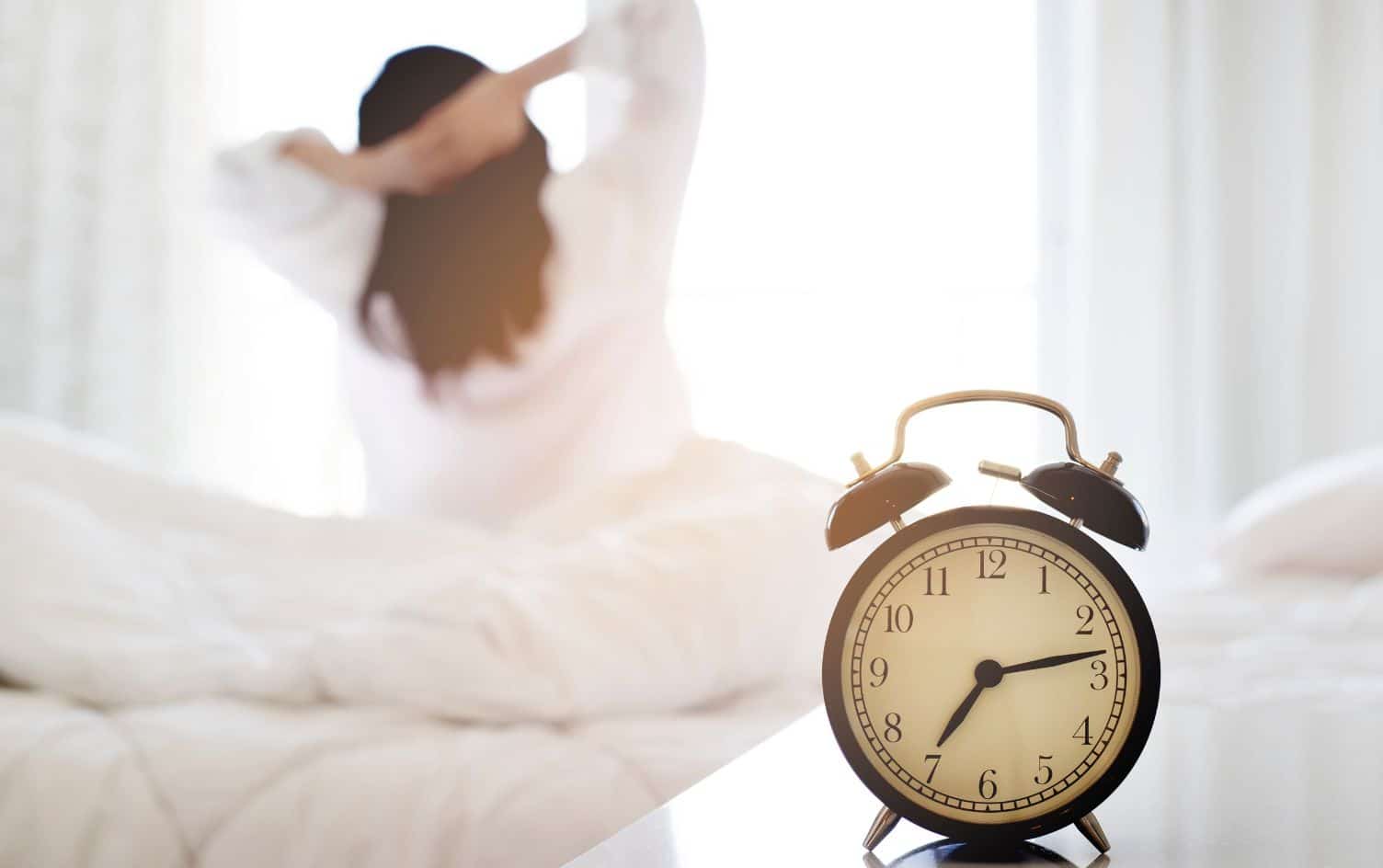We know your health is important to you, so periodically we’ll bring you special offers from our health and wellness partners. Enjoy this one from Cozy Earth Bedding and Pajamas, and get a complimentary 1-year MyFitnessPal Premium membership (valued at $79.99) with any Cozy Earth purchase. Limited time offer, runs through November 5, 2022.
See Cozy Earth for offer details.
It has many names: “summer time,” “fall back,” and even “spring forward.” It’s Daylight Saving Time (DST). As a country, we’ve observed DST for the last one hundred years or so. But no matter what, it always seems to creep up on us when we least expect it.
With DST ending November 6th, we’re going back to Standard Time. This means you basically “gain” 1 hour of sleep — but don’t hit snooze just yet! You can make the most of your sleep time with these expert-backed tips.
TAKE A MORNING WALK
Getting out of bed isn’t easy. And if you have Cozy Earth products to provide temperature regulation and luxury through ethically-sourced materials, you’re probably feeling extra cozy. But the benefits of exercise are extraordinary — even if it’s just a quick morning walk.
The benefits: Working out first thing in the morning can prime your muscles to burn sugar and fat efficiently all day long. Additionally, a morning walk isn’t just good for fat-burning; it may also help lower blood pressure, especially for older or obese people.
CONSIDER A DIET THAT ENCOURAGES SLEEP
Sleep is powered by many things, but mostly by a chemical that’s naturally produced in the body called melatonin (aka the sleep hormone). Melatonin is one of many incredible components that make up our circadian rhythm. And what you eat can affect your melatonin activity. For optimum snoozing, try this food cheat sheet for better sleep:
Just say YES to…
- Nuts and seeds – Walnuts contain tryptophan, an essential amino acid the body uses to make melatonin and serotonin — two chemicals that promote sleep.
- Bananas and whole grains – Magnesium deficiency is linked with poor sleep, so make sure you eat foods like these that are high in magnesium and potassium.
- Mediterranean foods – These foods are rich in heart-healthy fats like extra virgin olive oil and nuts. Plus, you get to enjoy fruits, vegetables, whole grains, beans, seafood, and poultry.
- Plant-based fats – Foods like tofu, nuts, and avocados help reduce your intake of saturated fats. A high intake of saturated fats has been linked to lower quality/less sleep.
Just say NO to…
- Foods high in sugar – Consuming foods high in sugar close to bedtime is associated with poor sleep quality.
- Alcohol – Even just one night of drinking can decrease the amount of time you spend in REM sleep that night, particularly in the second half of the night. Additionally, chronic moderate alcohol (a pattern of consuming alcohol) results in an increased risk for sleep disorders.
- Caffeine – Foods and drinks that contain caffeine work by blocking two receptors in the brain, A1 and A2. Blocking A1 increases alertness, and blocking A2 increases dopamine levels, creating a stimulating effect. So, make sure you stop drinking caffeine at least 6 hours before bed to avoid feeling over-stimulated.
CONSIDER BEDTIME VERSUS MEALTIME
THE “RIGHT” MEALTIME
There are no hard and fast rules about how close to bedtime you should have your last meal of the day. It’s unique to every person, so experiment with meal times to figure out what works best for you, then adjust your meals accordingly. It also depends on how much and what you eat, so pay attention to those factors, too.
For example, try eating poultry, dairy, or eggs (plus a complex carbohydrate) with your last meal of the day. These foods contain tryptophan, which helps with sleep as it is a precursor for their chemical messenger, serotonin. Serotonin helps to regulate mood, appetite, and sleep. On top of that, consuming carbohydrates is associated with higher serotonin in the brain.
THE “RIGHT” SLEEP TIME
Many of your body’s physiological processes follow a 24-hour circadian rhythm. This is why having an inconsistent sleep routine can impact your ability to fall asleep and sleep well.
Try going to bed consistently at the same time every night to improve how fast you fall asleep and the quality of your sleep. It also helps to wear comfortable sleepwear (like Cozy Earth’s temperature-regulating and moisture-wicking fabric) and set temps at a snooze-friendly 65 degrees.
As humans, our relationship with sleep is inconsistent at best. It becomes even more complicated with added factors like stress, exercise, and environment. Throw in the curveball that is Daylight Saving Time, and you’ve got a who’s-on-first combo of circadian rhythm disruptors. By looking at Daylight Saving Time through the lens of nutrition and our bedtime habits, you can find your sleep sweet spot.




